ASHEVILLE, N.C.


ASHEVILLE, N.C.
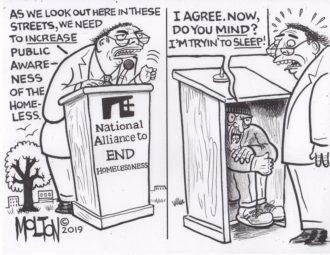
ASHEVILLE, N.C.

“We must recognize that as long as we prioritize more hotels, more restaurants, more new construction (none of which is wholly bad), we must also acknowledge the consequences of those priorities — the displacement of people on the margins — and find ways to sustainably address them.”

“The reason for this extraordinary housing retention rate is Homeward Bound doesn’t just put people in homes and forget about them; we provide ongoing support called case management.”

“Why are we expecting people to be in some other circumstance without considering the system that fails them? Where’s the rope and toehold?”

“Pity is sadness for one’s misfortune and keeps you in the past, but an exchange in goods and sharing of resources moves you forward.”
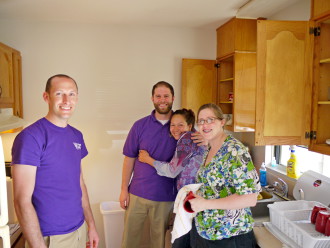
“Our brightest moment is when we move someone out of homelessness and their life changes for the better. Michelle is a great example of this.”
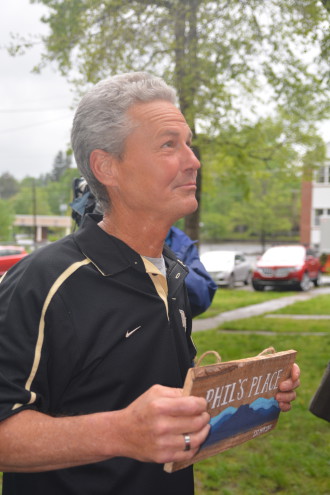
As a steady rain falls outside, Philip Caruso stands in the bedroom of his new apartment. “I don’t care [that it’s raining],” he says. “For the first time in decades, I’m not outside under a pine tree somewhere.” Caruso is a U.S. Marine veteran who saw combat in Beirut during the 1980s. His life was […]

No funding has officially been approved, but commissioners presented a united front in committing to a three-pronged approach to curbing opioid use. The effort will include community paramedics, residential treatment for new mothers and a media blitz focused on prevention.
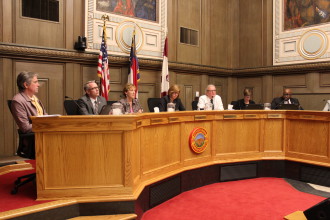
Through their elected leaders, Asheville voters will now have more say-so over development projects downtown and new hotels citywide.
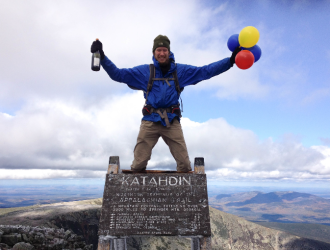
Each week, Xpress highlights notable WNC crowdsourcing initiatives that may inspire readers to become new faces in the crowd. This week features a new book by travel writer Gary Sizer, local volunteers’ efforts to help winterize Standing Rock’s camps, and an initiative to distribute care packages among homeless individuals.
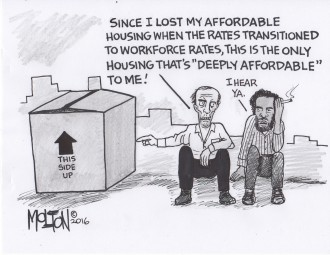

“There are better ways to handle this problem, and one is already being tried in Albuquerque, N.M., under the mayorship of Richard Berry, appropriately called the Better Way program.”

“While some people choose to be homeless and some people choose to manipulate the system, a lot of people are truly stuck in homelessness and need assistance getting out.”

“We have room for hotels and tourist needs, but we allow our homeless to die!”

“I also believe it’s important to stress compassion regardless of the circumstances that lead someone to periods of homelessness.”
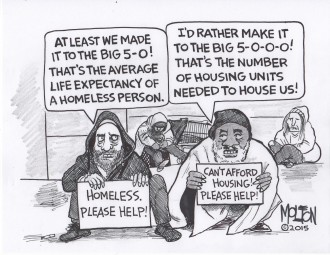
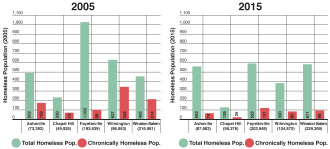
Although chronic homelessness has been curtailed substantially since 2005, the combination of a severe economic downturn, an acute shortage of affordable housing and the rising cost of living has hindered the overall progress in eradicating homelessness. Despite those setbacks, partners in the project are forging ahead with new initiatives to combat housing insecurity and ensure that those in need of shelter get it.
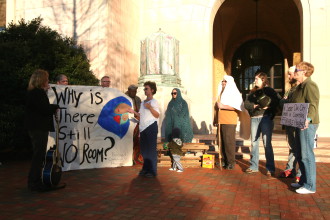
Members of the Be Loved Community, formerly homeless residents of Asheville and several city council members gathered outside of City Hall prior to City Council’s weekly meeting on Tuesday, Dec. 8, to listen to firsthand accounts of homelessness, voice support for the city’s affordable housing initiatives and encourage members of the Asheville community to stand […]

“if the city of Asheville really wants to fulfill the mayor’s promise to Michelle Obama to end veteran’s homelessness, it is going to have to figure out a way to fund and build a veterans apartment building or create some affordable housing for veterans another way.”
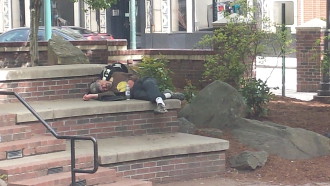
In 2005, city and county officials adopted the 10-Year Plan to End Homelessness, an ambitious collaboration involving many local agencies. Significant progress has been made: Since 2005, chronic homelessness is down 82 percent, from 293 people to just 54, city officials say. Yet there are still homeless folks on local streets.